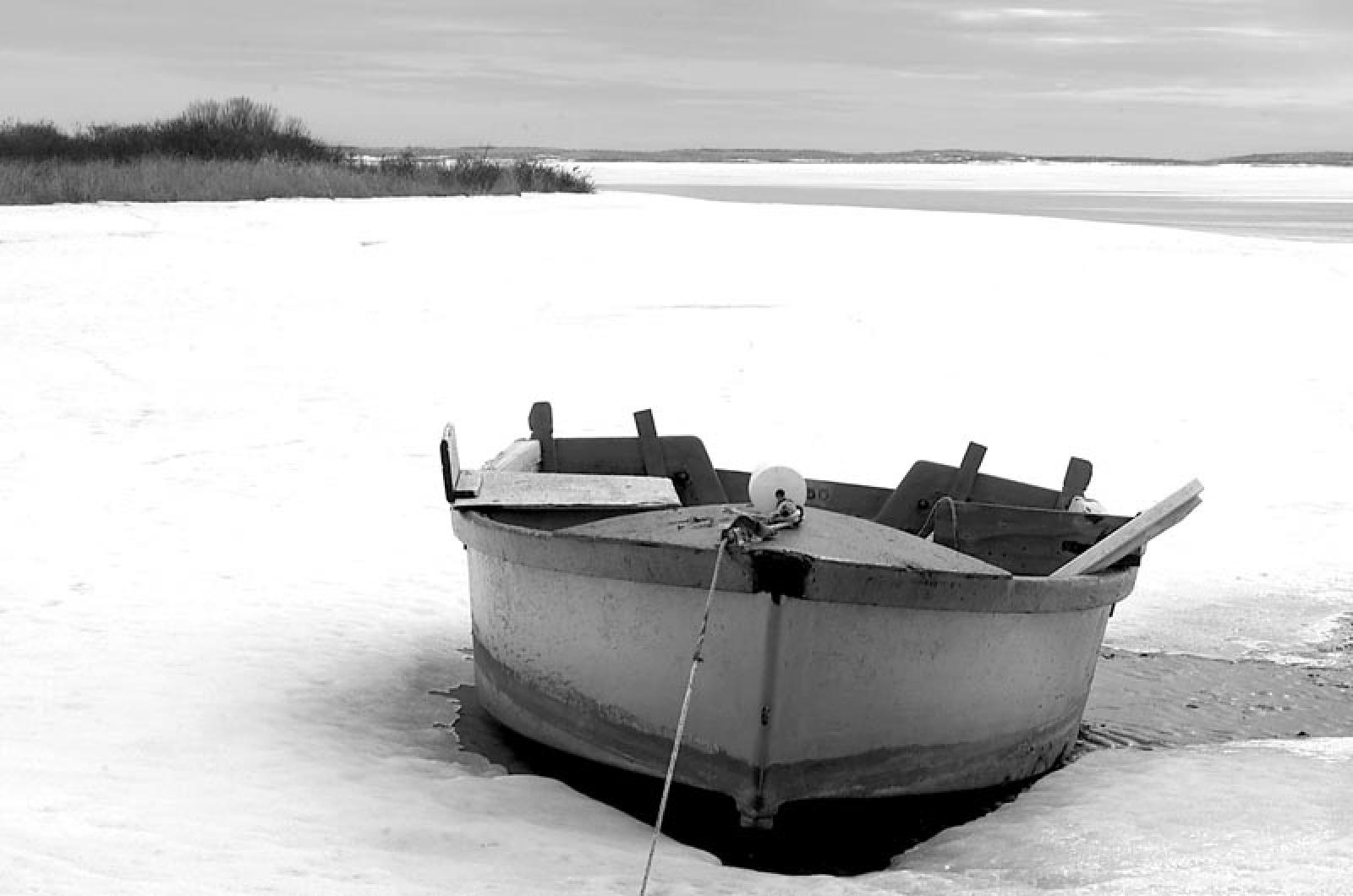Bitterly cold temperatures in January kept the bay scallop fleet grounded for many days, but frozen ponds may provide future benefits to some shellfish, including scallops and oysters, Island marine biologists say.
Rick Karney, director of the Martha’s Vineyard Shellfish Group, said last week that a drop in water temperature in saltwater ponds helps to inhibit the shellfish disease dermo, which is a threat to wild oysters.
Dermo, a protozoan pathogen that is not harmful to humans but kills baby oysters, was first detected in Island Great Ponds 20 years ago. It was first found in Chesapeake Bay in the 1950s and then spread north and south, reaching New England in the early 1990s. Much of the disease was spread by oyster relays (the practice of transplanting shellfish from one place to another).
Mr. Karney said warmer winters here and the ability of the disease to expand its range by genetically adapting were also contributing factors.
Dermo led to the collapse of the oyster fishery in Edgartown and Tisbury Great Ponds in the 1990s.
To combat the disease, Mr. Karney and his crew at the shellfish hatchery on Lagoon Pond began a genetic adaptation project of their own by cultivating oysters taken from the wild that showed signs of being resistant to the disease. The end result was a strain of dermo-resistant oysters and the eventual recovery of the wild oyster populations in both ponds.
But because dermo is still present, Mr. Karney and Edgartown shellfish constable Paul Bagnall both said that frozen ponds provide an added insurance policy to keep the disease at bay.
The freezing temperature for saltwater is 28 degrees.
Below-freezing temperatures are also a good weapon against green crabs, another invasive species and aggressive shellfish predator that do not survive well in cold water. “Once you get the water temperature down to 38, it slows them down. I am sure they will dig themselves into the bottom. A lot of them don’t make it through the winter,” Mr. Bagnall said.
“Cold weather, at the very least, puts the crabs and diseases in check,” he concluded.
Speaking anecdotally, Mr. Bagnall said he also believes the bay scallops fare better after a cold winter. “I think it resets the bay scallops,” Mr. Bagnall said. “We didn’t have a winter last year.”







Comments
Comment policy »